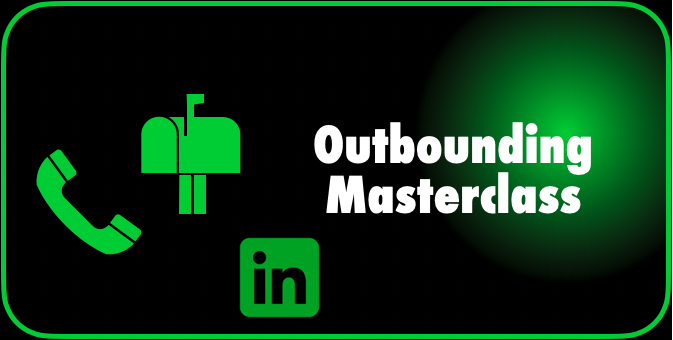Fight or flight. Survival of the fittest. Competing. Winning. The art of war. Only the paranoid survive. This fight and survive consciousness is in our DNA and has been the underlying paradigm for business in the 20th century and continues to this day. We learn to start behaving this way at a very early age — competing to get the best grades, to get into the best schools, the best jobs, the best promotions, and so on.
Survival is paramount. You can’t do anything if you don’t survive. Your business won’t achieve anything or solve any problems if it doesn’t survive. Survival is hard wired into our animal brains, it’s instinct and comes from us having learned to survive from the earliest days of our species.

There is also something primal about competition. It can be a strong motivator and source of drive. The best competitors bring out the best and motivate each other to stretch beyond limits they never thought possible. Sports rivalries are a thing of legend and a perfect example of where we see this play out. Ali vs. Frazier. Nadal vs. Federer. Magic vs. Bird. Yankees vs. Red Sox. Lakers vs. Celtics. Real Madrid vs. Barcelona. Jordan vs. the bad boy Pistons. The list goes on.
So naturally, survival and competition has also been the primary paradigm in business. Whether conscious or not, most activities and decisions are driven from this mindset. Countless sports and war analogies abound in business.
I have a couple issues with this. One argument against this paradigm has been beautifully laid out in the book “The Infinite Game” by Simon Sinek, where he argues that unlike sports or war that are finite games, things like business, careers, marriage and life are infinite games. While you may beat out other candidates for a job, there is no winner of careers. There is no winner of marriages. No matter how successful one may be in life, no one is declared the winner of life when they die. The same applies to business. “All these things are journeys, not events. Infinite games have infinite time horizons. And because there is no finish line, no practical end to the game, there is no such thing as winning in an infinite game. In an infinite game, the primary objective is to keep playing, to perpetuate the game.” The trouble begins “when we lead with a finite mindset in an infinite game, it leads to all kinds of problems, the most common of which include the decline of trust, cooperation and innovation. Leading with an infinite mindset in an infinite game, in contrast, really does move us in a better direction.”
The other issue I see with living out exclusively in the survival paradigm is that it keeps one in the energy of fear and lack. Fear of survival. Fear of losing. Fear of not being the fittest. Fear of not being successful. Lack of resources. Lack of fulfillment. Lack of acceptance. Fear and stress can be incredible motivators and stimulants. They can lead to out-performance in the short term. They don’t work well in the long term, and certainly not in infinite games. Fear and stress can lead to destructive behaviors, and create harm for oneself and others. Acute stress may actually be a good thing. Chronic stress is not.
Fear and lack can be deeply embedded in the subconscious. We may not even realize we’re operating from this paradigm. In fact, the actions and decisions of most leaders and businesses may stem from coping mechanisms to deal with the fear and compensate for the lack. You need a win to feel just a little better about yourself! This has led to unsustainable businesses practices such as the pursuit of unprofitable unicorn status, or growth for growth’s sake, trust and privacy scandals, and the blind pursuit of profits in the name of maximizing return to shareholders with little regard to the impact to customers, employees, society and the environment. When in survival mode, and worried about lack, one works in self-interest and looks to maximize outcomes only for oneself. Each person for themselves. The tragedy of the commons. The irony is that most such companies probably don’t reap huge profits or returns for shareholders in the long run.
The world is waking up to the consequences of operating only in survival, fear and lack. Those that don’t change and adapt may ironically not survive for long. When Charles Darwin used the term “survival of the fittest”, he used fittest to mean fit in today’s parlance. That is, species and organisms that were most fit for their environment lived to pass their genes on. It didn’t necessarily mean those that were the strongest, biggest or most competitive. It may mean those that learn to camouflage or cooperate. Unfortunately our survival paradigm twisted the meaning.
Thrive Paradigm
Luckily, there is a new paradigm opening to us. It gives us the opportunity to evolve beyond survival and competition. I call this the thrive paradigm. At its simplest, it’s based on the principles of service and truth, and the energy of love and abundance. It’s also a recognition that business is an infinite game. It’s my sincere hope that companies, founders and leaders that operate from this paradigm can and will create thriving businesses like we’ve never seen before, and will leave a lasting positive impact on all stakeholders — employees, customers, shareholders/investors and society.
My vision of a thriving business is an organization that builds products people want to buy vs. one that wants to sell its products. An organization that considers its impact to it’s people, customers, society and the world vs. just benefiting a few investors, shareholders and leaders. An organization that has a purpose, a vision, and looks at the long game vs. one that’s primarily just concerned about just the next quarter, next year or even next couple of years. An organization whose people come in to work each day motivated and inspired to make it better vs. one where employees dread coming to, feel emotionally unsafe and only show up to pay their bills. An organization that wants to create for the benefit of its people and customers vs. one obsessed with competition and winning and profits above all else. An organization focused on the important vs. one focused primarily on the urgent. An organization that experiments and explores unknown possibilities vs. one that just responds to an illusion of control and known factors.
The key elements of this paradigm (along with a contrast of thrive vs survive mindset for each):
Someone who’s worried about survival is going to act very differently from someone that wants to thrive and put a dent in the world. It’s a completely different lens — a very narrow vs a broader and higher view. Steve Ballmer vs Steve Jobs — it wasn’t a fair fight. Jobs wasn’t even competing with him, he was changing the world but was making Microsoft almost irrelevant in the process.
I believe operating from this paradigm can allow any stage of business to thrive. Now if you’re starting a new business, or engaged in a brutal competition for market share, survival is probably all that’s on your mind and all this talk of thriving may seem trivial or hogwash. My intuition is that letting go of the worry of survival and approaching things with a thrive mindset will drastically increase your chances of survival and success. In fact, my hope is that you’re not going to just survive, but thrive (sorry had to put that in)! I’m a huge believer in process vs outcomes and the thrive paradigm allows one to take a higher perspective, and not get lost in rivalries or trivialities. Play chess rather than just checkers.
In future posts, I’ll expand on each of the elements above and how they can contribute towards building a thriving business.




